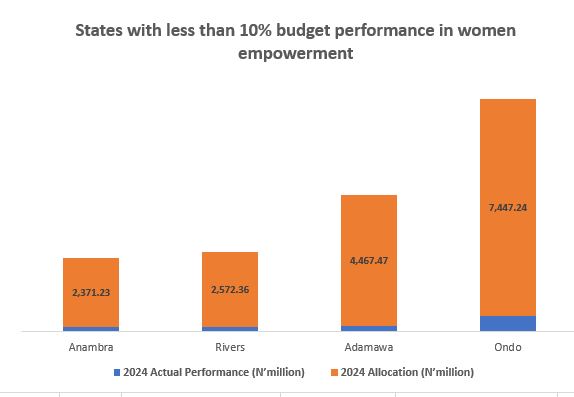…57million at risk of waterborne diseases
The danger posed by industrial and other waste seeping into off-grid drinking water sources, such as wells and boreholes, is forcing public health experts to clamour for the enforcement of regulatory provisions which restrict the citing of septic tanks near underground water sources.
The experts likewise emphasise that wells, boreholes and other off-grid sources from which drinking water is obtained, need to be tested to ensure that they do not contain biological or chemical impurities hazardous to humans and animals.
This message is particularly pertinent, given that about 57 million Nigerians lack access to clean drinking water and are exposed to water borne diseases, according to WaterAid, an international non-governmental organisation.
WaterAid further states that over 130 million Nigerians lack access to adequate sanitation, leading to 45,000 children under five years old dying every year from diarrhoea, caused by unsafe water and poor sanitation.
- …57million at risk of waterborne diseases
- The National Agency for Food and Drug Administration and Control (NAFDAC) says the normal standard is to situate wells and boreholes at least 10 metres away from a septic tank, reiterates John Owo, CEO, Cooha Water Technologies Limited. Taiwo Ajayi, a professor of Geology at Obafemi Awolowo University, says many do not adhere to this provision, raising the possibility of health hazards. “If a borehole is too close to a soak away there must be a leakage,”Ajayi said. A study conducted by geologists from the University of Calabar, led by Eni Imoke, concluded that waste management has remained an undisputable environmental problem in Nigeria. “This has manifest in the form of indiscriminate disposal of waste and illegal landfills and dumps along main roads and streets,” the study says. The researchers found that solid waste disposed in landfills is usually subjected to series of complex biochemical and physical processes, which lead to the production of both leachate and gaseous emissions. “When leachate leaves the landfill and reaches the water table, it results in borehole contamination,” said the study. A geologist who works in the oil and gas industry, said “there is a need to treat our environment right, as everything that is littered on the soil goes back to the ground, when water is not well treated, the waste toxic substance in the water can cause danger to our health”. Last year, Enugu state reported 76 deaths due to a cholera outbreak, and many more go unreported, especially in rural areas. Adeoti Lukman, associate professor, Department of Geosciences, University of Lagos, said: “The biggest challenge is that those digging the traditional wells and boreholes do not do feasibility studies regarding the depth needed. Part of feasibility studies entails taking samples of the soil and water to a laboratory to ascertain it is safe for drinking. “For instance, to get clean water around the Lekki area in Lagos state, which is sedimentary terrain, you must dig between 200 – 400 metres. Otherwise, you will be drinking water from the Atlantic Ocean. This applies to every form of well you are digging, when due diligence is not undertaken, surface water mixes with underground water and what you get is polluted and contaminated water,” Lukman noted. “For basement complex areas, you have to dig until you hit a fractured zone, from where you get clean drinking water,” he added. Ikechukwu Ibeabuchi, CEO of MD Services, which produces Klopp Water Cure, a water treatment chemical, said many parts of Nigeria, such as Ebonyi state, have a water-borne disease known as guinea worm, as there are not more than three firms in Nigeria producing water treatment chemicals. Ibeabuchi said, “States are not even interested in water. If they are, they would be encouraging citizens to treat the water they drink.”
The National Agency for Food and Drug Administration and Control (NAFDAC) says the normal standard is to situate wells and boreholes at least 10 metres away from a septic tank, reiterates John Owo, CEO, Cooha Water Technologies Limited.
Taiwo Ajayi, a professor of Geology at Obafemi Awolowo University, says many do not adhere to this provision, raising the possibility of health hazards. “If a borehole is too close to a soak away there must be a leakage,”Ajayi said.
A study conducted by geologists from the University of Calabar, led by Eni Imoke, concluded that waste management has remained an undisputable environmental problem in Nigeria.
“This has manifest in the form of indiscriminate disposal of waste and illegal landfills and dumps along main roads and streets,” the study says.
The researchers found that solid waste disposed in landfills is usually subjected to series of complex biochemical and physical processes, which lead to the production of both leachate and gaseous emissions.
“When leachate leaves the landfill and reaches the water table, it results in borehole contamination,” said the study.
A geologist who works in the oil and gas industry, said “there is a need to treat our environment right, as everything that is littered on the soil goes back to the ground, when water is not well treated, the waste toxic substance in the water can cause danger to our health”.
Last year, Enugu state reported 76 deaths due to a cholera outbreak, and many more go unreported, especially in rural areas.
Adeoti Lukman, associate professor, Department of Geosciences, University of Lagos, said: “The biggest challenge is that those digging the traditional wells and boreholes do not do feasibility studies regarding the depth needed. Part of feasibility studies entails taking samples of the soil and water to a laboratory to ascertain it is safe for drinking.
“For instance, to get clean water around the Lekki area in Lagos state, which is sedimentary terrain, you must dig between 200 – 400 metres. Otherwise, you will be drinking water from the Atlantic Ocean. This applies to every form of well you are digging, when due diligence is not undertaken, surface water mixes with underground water and what you get is polluted and contaminated water,” Lukman noted.
“For basement complex areas, you have to dig until you hit a fractured zone, from where you get clean drinking water,” he added.
Ikechukwu Ibeabuchi, CEO of MD Services, which produces Klopp Water Cure, a water treatment chemical, said many parts of Nigeria, such as Ebonyi state, have a water-borne disease known as guinea worm, as there are not more than three firms in Nigeria producing water treatment chemicals.
Ibeabuchi said, “States are not even interested in water. If they are, they would be encouraging citizens to treat the water they drink.”
Taiwo Ajayi, a professor of Geology at Obafemi Awolowo University, says many do not adhere to this provision, raising the possibility of health hazards. “If a borehole is too close to a soak away there must be a leakage,”Ajayi said.
A study conducted by geologists from the University of Calabar, led by Eni Imoke, concluded that waste management has remained an undisputable environmental problem in Nigeria.
“This has manifest in the form of indiscriminate disposal of waste and illegal landfills and dumps along main roads and streets,” the study says.
The researchers found that solid waste disposed in landfills is usually subjected to series of complex biochemical and physical processes, which lead to the production of both leachate and gaseous emissions.
“When leachate leaves the landfill and reaches the water table, it results in borehole contamination,” said the study.
A geologist who works in the oil and gas industry, said “there is a need to treat our environment right, as everything that is littered on the soil goes back to the ground, when water is not well treated, the waste toxic substance in the water can cause danger to our health”.
Last year, Enugu state reported 76 deaths due to a cholera outbreak, and many more go unreported, especially in rural areas.
Adeoti Lukman, associate professor, Department of Geosciences, University of Lagos, said: “The biggest challenge is that those digging the traditional wells and boreholes do not do feasibility studies regarding the depth needed. Part of feasibility studies entails taking samples of the soil and water to a laboratory to ascertain it is safe for drinking.
“For instance, to get clean water around the Lekki area in Lagos state, which is sedimentary terrain, you must dig between 200 – 400 metres. Otherwise, you will be drinking water from the Atlantic Ocean. This applies to every form of well you are digging, when due diligence is not undertaken, surface water mixes with underground water and what you get is polluted and contaminated water,” Lukman noted.
“For basement complex areas, you have to dig until you hit a fractured zone, from where you get clean drinking water,” he added.
Ikechukwu Ibeabuchi, CEO of MD Services, which produces Klopp Water Cure, a water treatment chemical, said many parts of Nigeria, such as Ebonyi state, have a water-borne disease known as guinea worm, as there are not more than three firms in Nigeria producing water treatment chemicals.
Ibeabuchi said, “States are not even interested in water. If they are, they would be encouraging citizens to treat the water they drink.”










